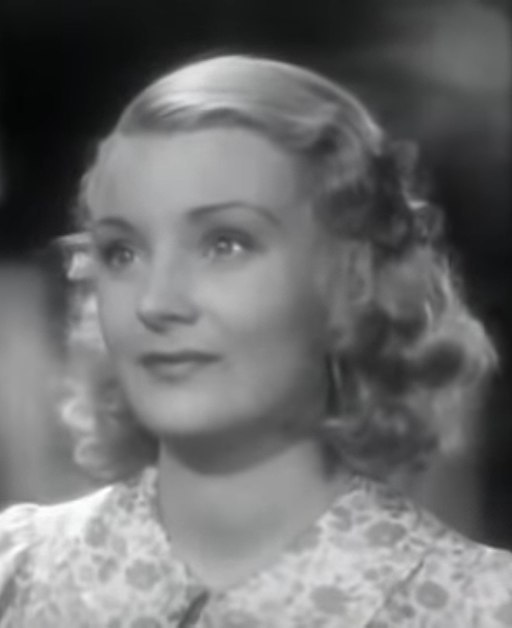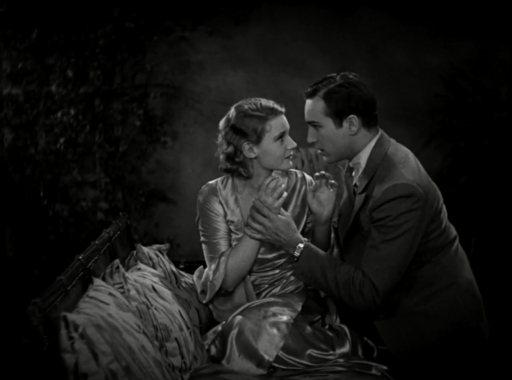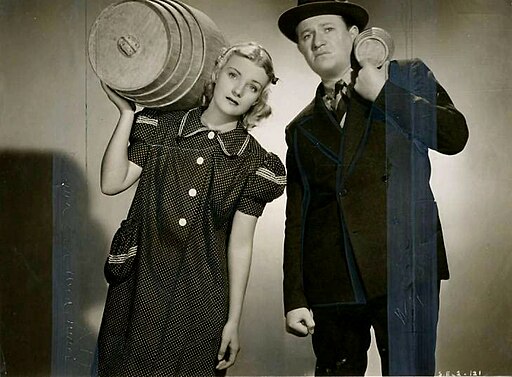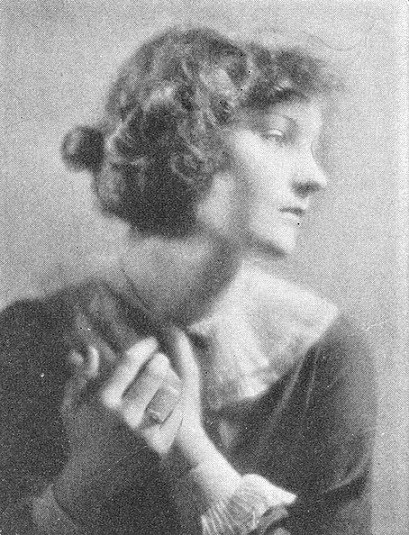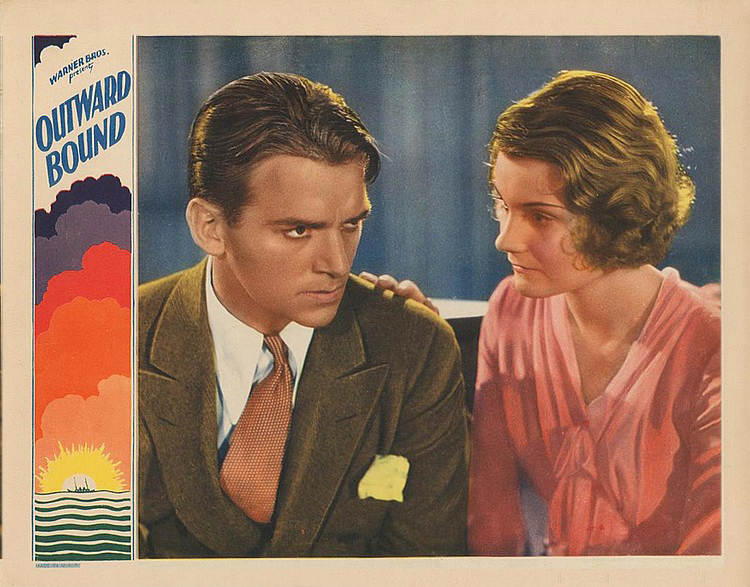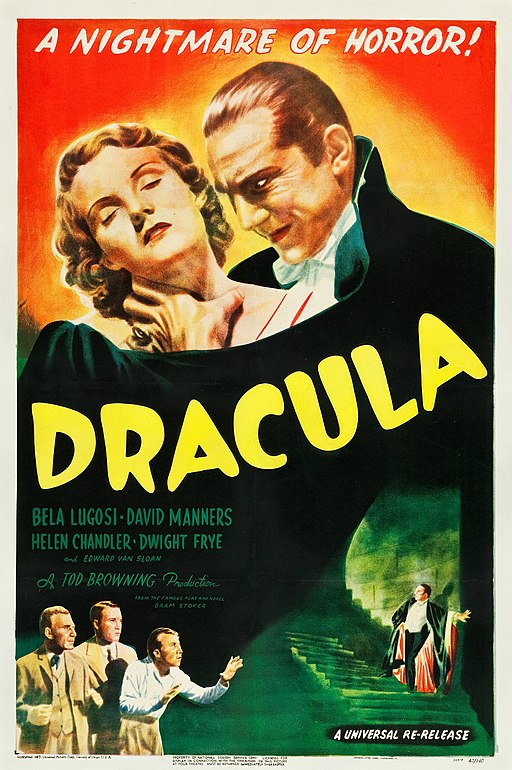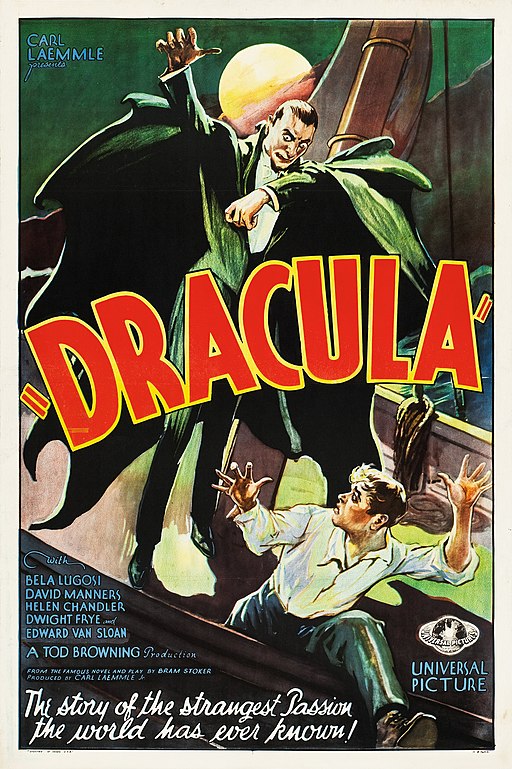Helen Chandler
back| Full Name | Helen Chandler |
| Stage Name | Helen Chandler |
| Born | February 1, 1906 |
| Birthplace | Charleston, South Carolina, U.S. |
| Died | April 30, 1965 |
| Buried | Valhalla Memorial Park Cemetery in North Hollywood, California |
| Married to | Bramwell Fletcher (1935 - 1940) - Cyril Hume (1940 - 1946) - Walter Piascik (1946 -1965) |
| Children | None |
| Notable films | Dracula (1931) - The Last Flight (1930) - The Last of the Mohicans (1932) |
Helen Chandler
Muse of Early Horror
Throughout her career, Helen Chandler graced the stage and screen with her performances, but it was her role in "Dracula" that would immortalize her as a film icon.
Despite her early success, her career began to wane in the mid-1930s, and she eventually left Hollywood behind, making her final film appearance in 1938. Chandler's later years were marked by personal struggles, and she passed away in 1965 at the age of 59.
Related
Helen Chandler
Biography and Overview of her Acting Career
Helen Chandler's story is a poignant tale of early Hollywood stardom, marked by fleeting success and personal struggles that mirrored the complex narratives she portrayed on screen. Born on February 1, 1906, in Charleston, South Carolina, Chandler grew up in a time when the film industry was burgeoning into the cultural behemoth it would become. Her early years were spent absorbing the arts, a passion likely influenced by the vibrant cultural heritage of her birthplace.
Chandler's path to success began on the stage, a common starting point for many actors of her era. She had a natural affinity for acting, and her talent quickly propelled her from local theater productions to the bright lights of Broadway. It was on the New York stage where she honed her craft, capturing the attention of audiences and critics alike with her ethereal presence and nuanced performances.
The transition from stage to screen was a natural progression for Chandler, and she made her film debut in the late 1920s. However, it was her role as Mina Seward in the 1931 film "Dracula" that catapulted her to stardom. Her portrayal of the vulnerable and mesmerizing victim of Bela Lugosi's Dracula established her as a beloved figure in the horror genre and a noteworthy talent in Hollywood.
Despite her professional success, Chandler's personal life was fraught with challenges. She was married three times, first to actor Bramwell Fletcher, then to screenwriter Cyril Hume, and finally to Walter P. Chrysler Jr. Each marriage ended in divorce, reflecting a tumultuous personal life that contrasted sharply with her serene on-screen persona. Chandler had no children, and her marriages were often subjects of public fascination and speculation.
Beyond her acting career, Chandler had various passions and interests. However, details about her hobbies and personal pursuits outside of her professional life are not well-documented, leaving much of her off-screen life shrouded in mystery. What is clear, though, is her dedication to her craft and her impact on the film industry during her peak years.
Tragically, Helen Chandler's life came to a premature end on April 30, 1965. She died in Hollywood, California, at the age of 59. Chandler's cause of death was reported as a result of complications from surgery, but her health had been in decline for years prior, exacerbated by alcoholism and the challenges she faced in her personal life. Her passing marked the end of a life that had once shone brightly on both stage and screen but had dimmed in the shadow of her struggles.
Short Video Bio on Helen Chandler:
Analysis of her Acting Style:
Helen Chandler's acting style is emblematic of the transition period from silent films to the early sound era, blending the expressive physicality required by the former with the nuanced vocal delivery that the latter demanded. Her performances are characterized by a delicate balance of vulnerability and strength, an ethereal presence that captivated audiences and set her apart from her contemporaries.
Ethereal and Vulnerable Presence
Chandler's most iconic role, Mina in "Dracula" (1931), perfectly encapsulates her ability to convey vulnerability and innocence. Her portrayal of Mina is both ethereal and grounded, allowing the audience to empathize with her character's plight. Her wide-eyed expressions and subtle gestures communicate fear, fascination, and victimhood without recourse to over-dramatization, a testament to her skill in utilizing the silent era's techniques in a sound-dominated medium.
Emotional Nuance and Expressive Eyes
Chandler had a remarkable ability to convey complex emotions through subtle facial expressions, particularly her eyes, which were often described as expressive and capable of reflecting deep emotions without a word being spoken. This ability to communicate silently was a crucial asset during the early sound era when actors had to adjust to the microphone's presence without losing the silent era's expressiveness.
Voice and Diction
With the advent of sound in cinema, Chandler's clear and melodious voice added another layer to her performances, enabling her to convey a wider range of emotions and subtleties in her characters. Her diction was precise, a necessary adaptation to the early microphones and sound recording techniques, which often required actors to speak more deliberately. Chandler navigated these challenges adeptly, ensuring her voice carried both the emotional weight and clarity the new medium demanded.
Adaptability and Range
Chandler's filmography, though more remembered for "Dracula," also showcased her versatility across genres, including drama, romance, and adventure. This adaptability speaks to her range as an actress, capable of moving beyond the horror genre to embody complex characters in different settings. Her performances in films like "The Last Flight" (1930) and "Waterloo Bridge" (1931) demonstrate her ability to navigate the emotional landscapes of love, loss, and tragedy with depth and sincerity.
Legacy and Influence
While her career was relatively brief, Helen Chandler's acting style left an indelible mark on the horror genre and early sound cinema. Her ability to blend the physical expressiveness of silent film acting with the vocal demands of sound cinema created a unique screen presence that remains influential. Her portrayal of vulnerability and strength, combined with a hauntingly ethereal quality, continues to be celebrated by film historians and enthusiasts, cementing her legacy as a distinctive talent of early Hollywood.
Recognition of her Work:
While Chandler may not have received formal awards for her work, her contribution to the film industry, particularly her iconic role in "Dracula" (1931), has left a lasting legacy. Her performance as Mina has been celebrated for its vulnerability and depth, qualities that contributed significantly to the film's enduring status as a classic of the horror genre. Over time, Chandler's work has been recognized by film scholars and enthusiasts for its historical significance and its contribution to the development of film as an art form.
In recent years, there has been a growing appreciation for the contributions of actors from the early 20th century, including Chandler, through retrospective screenings, film festivals, and scholarly work. While these posthumous recognitions are not formal awards, they serve as important acknowledgments of Chandler's place in film history and her impact on the industry.
Notable Movies featuring Helen Chandler:
1927 - "The Music Master"
Synopsis: Chandler's film debut where she likely played a supporting role. This silent film era project set the stage for her transition to sound films.
1930 - "The Last Flight"
Synopsis: A tale of disillusioned World War I aviators living in Paris, Chandler plays the role of a young woman entangled in their tragic post-war escapades.
1931 - "Dracula"
Synopsis: In this iconic horror film, Chandler stars as Mina Seward, one of Dracula's (played by Bela Lugosi) victims. Her performance in this film cemented her status as a horror film icon.
1931 - "Waterloo Bridge"
Synopsis: Chandler appears in this pre-Code drama film about a soldier who falls in love with a chorus girl. It explores themes of love and loss during World War I.
1932 - "The Last of the Mohicans"
Synopsis: In this adaptation of James Fenimore Cooper's novel, Chandler plays Cora Munro, one of the daughters of the British Colonel Munro, navigating the dangers of the French and Indian War.
1933 - "Alice in Wonderland"
Synopsis: Chandler lends her voice to Alice in this early film adaptation of Lewis Carroll's famous novel, bringing to life the whimsical world of Wonderland.
1934 - "A House Divided"
Synopsis: In this drama, Chandler portrays a young woman caught in a complex family dynamic, showcasing her ability to navigate emotionally charged roles.
1935 - "Outcast Lady"
Synopsis: Chandler has a supporting role in this film about societal expectations and the personal turmoil of a woman trying to navigate her path.
1938 - "Mr. Boggs Steps Out"
Synopsis: In one of her final film roles, Chandler plays a supporting character in this comedy about a small-town man who inherits a fortune and moves to the city to live out his dreams.
List of all Movies with Helen Chandler:
- The Music Master (1927)
- Salvation Nell (1927)
- The Joy Girl (1927)
- Mother's Boy (1929)
- Adoration (1928)
- The Sky Hawk (1929)
- Rich People (1929)
- The Last Flight (1930)
- Outward Bound (1930)
- Once a Lady (1931)
- Dracula (1931)
- Fanny Foley Herself (1931)
- Waterloo Bridge (1931)
- The Phantom of Crestwood (1932)
- A Farewell to Arms (1932) - Uncredited
- Behind the Mask (1932)
- Christopher Strong (1933)
- The Worst Woman in Paris? (1933)
- It's Great to Be Alive (1933)
- Goodbye Again (1933)
- Alimony Madness (1933)
- The Last Gentleman (1934)
- A House Divided (1935)
- Dance Band (1935)
- Village Tale (1935)
- The Girl from 10th Avenue (1935)
- The Marriage Bargain (1935)
- Legion of Terror (1936)
- Don't Get Personal (1936)
- Alibi for Murder (1936)
- Yours for the Asking (1936)
- Blonde Trouble (1937)
- Mr. Boggs Steps Out (1938)

